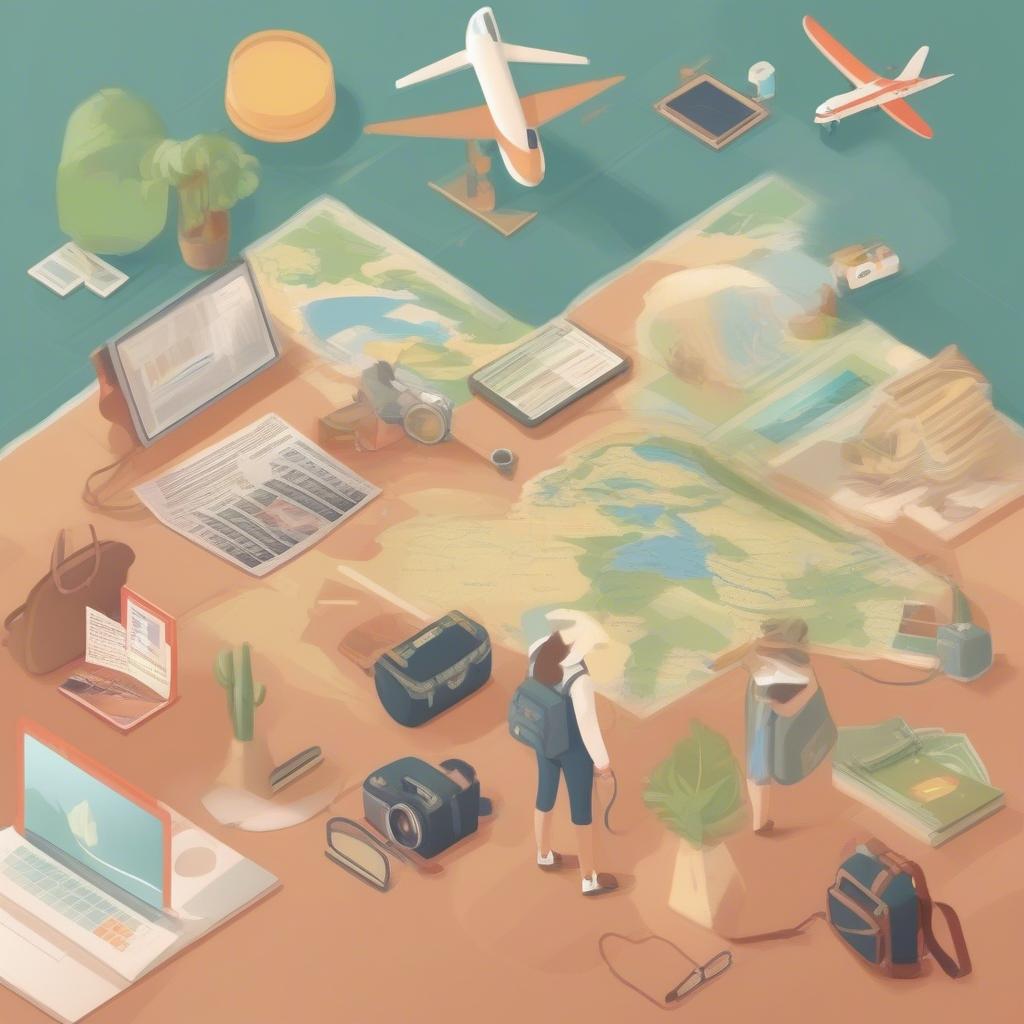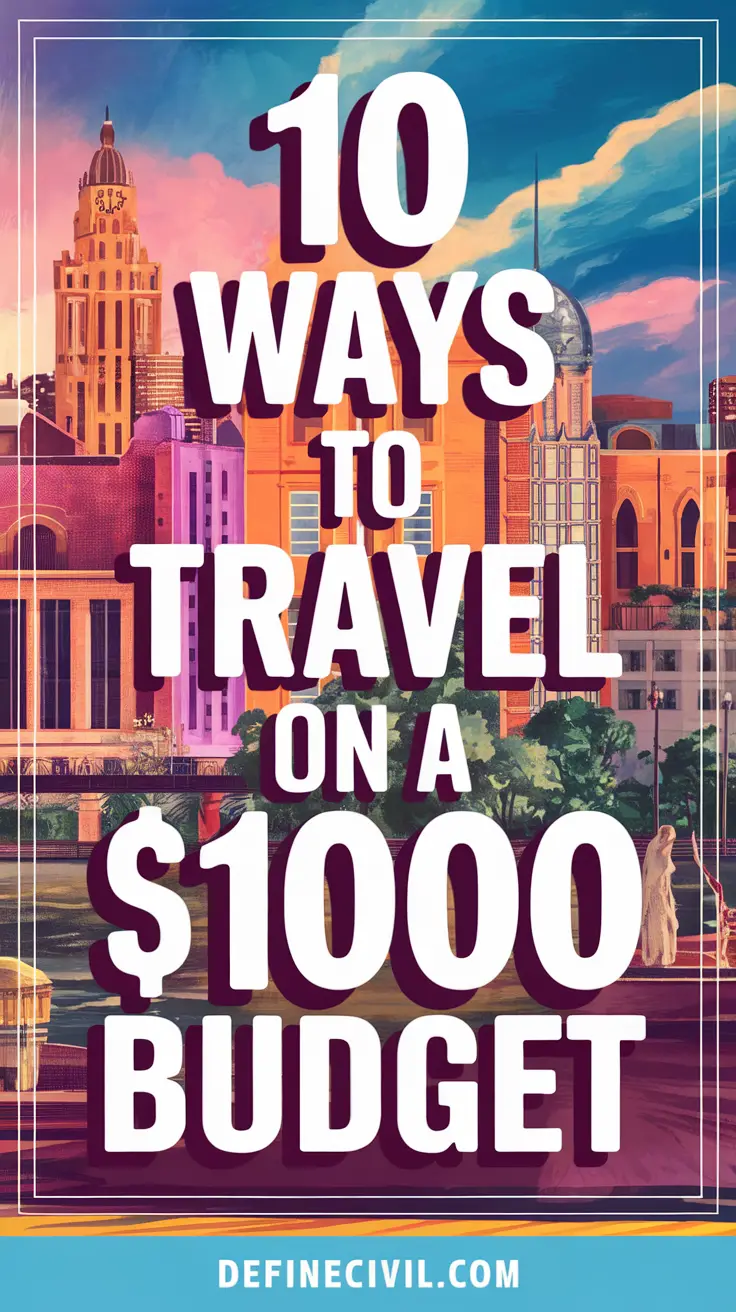
Traveling on a Budget: A Beginner’s Guide to Saving Money on Your Next Trip
Are you itching to travel but think it’s exclusive to those with a big bank account? Think again. With some careful planning and strategic use of reward points, you can travel on a budget without sacrificing the quality of your trip. As a beginner, it’s essential to know the ins and outs of traveling on a shoestring, and we’re here to guide you through the process.
Start Planning Early
If this is your first big trip, chances are you’ve already started planning. That’s great – the sooner you start, the more time you have to save money. Travel prices fluctuate with demand, and the cycle changes as your travel dates get closer. By beginning your planning early, you’ll have the best chance of finding discounted hotel rooms, cheaper flights, and other affordable activities.
Keep an Eye on Prices
It’s essential to monitor prices regularly, even if you don’t book immediately. You can use online tools such as Google Flights to track prices and receive alerts when rates drop. This way, you can jump on the best deals and book when the time is right.
Book at the Right Time
When to book and when to travel can significantly impact the cost of your trip. This applies to both flights and hotels.
Services like Google Flights can help you determine the best time to book your flights. This tool shows how the current fare compares to past pricing and lets you know if it’s high or low compared to average costs. You can also set up price tracker alerts to notify you when fares drop.
According to Expedia, the best day to buy airline tickets is Sunday. Keep this in mind when planning your trip.
Skip Overpriced Tours
There’s no need to break the bank on guided tours when you can explore a new city on your own or take advantage of free walking tours. Many major cities offer these tours, which provide valuable information about the area without the hefty price tag.
If you prefer a more structured tour, consider using apps like Spotted By Locals, Tripadvisor, or Rick Steves. These services offer comprehensive information about various cities, often at no cost or for a small fee.
Use Reward Points
One of the best ways to save money on travel is by redeeming reward points for flights, hotels, and other expenses. This type of travel requires planning, as you’ll need to accumulate enough points to make a redemption.
You can earn reward points through welcome bonuses when opening a travel credit card. For example, the AAdvantage Aviator Red World Elite Mastercard offers 60,000 bonus miles after making your first purchase and paying the $99 annual fee within the first 90 days.
Reward points can be redeemed for flights, hotels, and other travel expenses. By using points, you can save a significant amount of money on your trip. For instance, a round-trip flight from Los Angeles to Paris can be booked using 45,000 American Airlines miles.
Travel in the Off-Season
Another excellent way to save money is to travel during the off-season. Prices for flights, hotels, tours, and dining tend to be lower during this time. In Europe, the peak season is during the summer months, when prices are at their highest.
By taking your trip during the off-season, you can save a substantial amount of money. For example, a flight to Paris that costs $1,255 during the off-season can be as high as $2,070 during peak season.
Maximizing Your Rewards
When choosing a travel credit card, consider one that prioritizes what’s important to you. Here are some of the best travel credit cards of 2025:
*h3 Best Travel Credit Cards
* Flexibility, point transfers, and a large bonus: Chase Sapphire Preferred Card
* No annual fee: Wells Fargo Autograph Card
* Flat-rate travel rewards: Capital One Venture Rewards Credit Card
* Bonus travel rewards and high-end perks: Chase Sapphire Reserve Luxury perks: The Platinum Card from American Express
* Business travelers: Ink Business Preferred Credit Card
About the Author
Carissa Rawson is a freelance award travel and personal finance writer. Her work has been featured in numerous publications, including Forbes, Business Insider, and The Points Guy.
Conclusion
Traveling on a budget doesn’t mean you have to sacrifice the quality of your trip. With careful planning, strategic use of reward points, and traveling during the off-season, you can save money and still have a fantastic time. Whether you’re a beginner or an experienced traveler, these tips will help you make the most of your next adventure. What is the main goal of this guide? The main goal of this guide is to help beginners learn how to travel on a budget without sacrificing the quality of their trip.
What is the main goal of this guide? The main goal of this guide is to help beginners learn how to travel on a budget without sacrificing the quality of their trip.
Why is it important to start planning early? Starting to plan early gives you more time to save money, as travel prices fluctuate with demand and can become more expensive as your travel dates approach.
What tools can be used to keep an eye on flight prices? You can use online tools such as Google Flights to track prices and receive alerts when rates drop.
When is the best day to buy airline tickets? The best day to buy airline tickets is Sunday.
How can you save money on tours? You can save money on tours by exploring the city on your own or taking advantage of free walking tours, or by using apps like Spotted By Locals or Tripadvisor for more structured options at lower costs.
What is an effective way to save money on travel? One effective way to save money on travel is by redeeming reward points for flights, hotels, and other expenses.
How can you earn reward points? You can earn reward points through welcome bonuses when opening a travel credit card, among other methods.
Why is traveling in the off-season a good idea? Traveling in the off-season typically means you can save a substantial amount of money on flights, hotels, tours, and dining.
What are some of the best travel credit cards mentioned in the guide? The guide mentions the Chase Sapphire Preferred Card, Wells Fargo Autograph Card, Capital One Venture Rewards Credit Card, Chase Sapphire Reserve, The Platinum Card from American Express, and the Ink Business Preferred Card.
Who wrote this guide? This guide was written by Carissa Rawson, a freelance award travel and personal finance writer.

